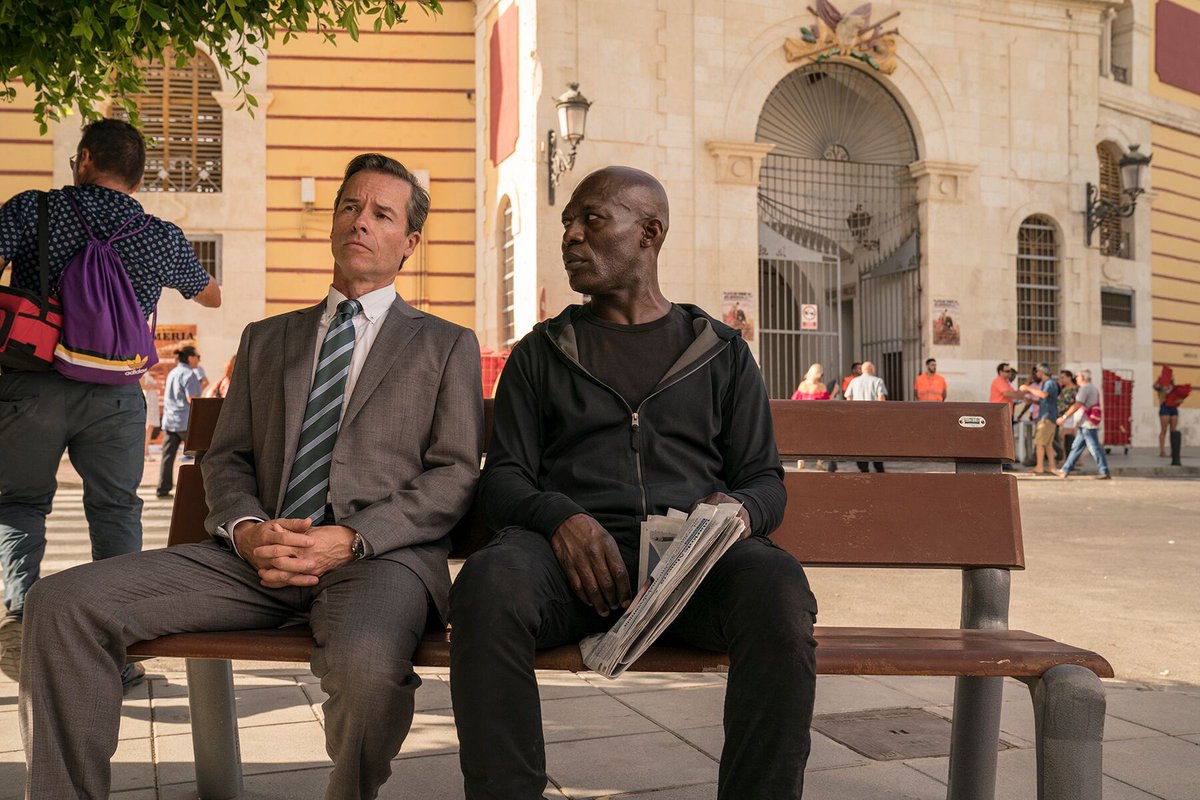. The entire on-stage discussion can be listened to at
, although if you do not speak French, it is a challenge to figure out what the questions are-- it appears they might have had De Palma and Lehman reading English translations of the French-speaking moderator
from a screen.
Some intriguing comments and mentions: Lehman at one point mentions that their American publisher had wanted them to change the opening sentences of the novel... can we look forward to an English-language version of Are Snakes Necessary? They also mention two more possible novels in the works. Here's a partial transcript of the discussion, limited by my speculations about the questions that were asked. Please note that De Palma often leaps into sarcasm in a single bound, so imagine a sarcasm font in several places (usually followed by laughter on stage or from the audience)...
[Where did you get the idea for Are Snakes Necessary?] De Palma: Where did I get the idea? Well, let me see...from the Edwards campaign, where he had a young lady taking videos of him that were supposed to show the truth of a campaign... of a campaigner on the campaign trail. And when I saw the video-- they were called webisodes-- and she was posting them on the web, and you could see by the way he was addressing the camera, i.e. her, he was, uhh, talking about the campaign, talking about himself, and looking at her in a very...snake-like way. And of course, a relationship developed, and the campaign manager's going, "We gotta get rid of this girl!" Which essentially, that's where, in the Edwards campaign, he not only had an affair with her, he knocked her up. And then, can you believe, he said his married assistant did it! You cannot make this stuff up.
[The Chandra Levy murder is brought up...]
De Palma: Oh yeah, that's another case that fascinated me. Again, another politician having an affair with one of his attractive young assistants, and one day, she disappears. And they go to the, I think it was a Congressman: "Do you know where she might be?" And he says, "No, she's only an assistant, I know nothing..." But of course, it all came out, he was having an affair with her, and then everybody thought he had something to do with getting rid of her. We have so many great political stories in America.
[Shift to talking about current administration...]
De Palma: There's so much material out there. How about paying off a porn star?
Lehman: The best-running serial TV in America right now, and arguably, the best comedy show, is the news. We sit down in front of the news every night. You can tell me whether you think it's comedy or not, but it's very engaging. I think the answer to your question is, Trump has no humor whatsoever, and yet, he has all the power. So, we need humor to survive, clearly, but... And this administration, of course, has been a great gift to late night comedy and humorists.
De Palma: Don't say too much against him. He is going to tweet against you. And what's he going to call you?
Lehman: A snake! [De Palma laughs]
De Palma: Well, he hasn't gotten us into any bad wars yet. And I grew up in an era where we were in crazy places for reasons one could never figure out. You know, it's sort of like Brexit. What is it? And why must we get out of it? [De Palma laughs] So, yeah, I went and made many movies about how terrible I thought our invasions of these other countries were. Because all the reasons they gave made no sense whatsoever. And of course, after Vietnam, we invade Iraq. There's a good idea, don't you think? What a great job we did there. But Trump is basically an isolationist. And he just wants to stay there and make all the money, and just, don't get into too much trouble. Except for all those Mexicans coming across the border!
[A question about how the pair worked together in writing the book...]
Lehman: We did not share the roles. We really did it together. Part of the fun was writing to each other. And in a way, that speaks to the parentheses that you mentioned, because I would be writing almost as if a letter, and he would write back...
[Then, a followup comment having something to do, perhaps, with the humor in the book resembling the authors' own back-and-forth banter?]
Lehman: Yeah, I think that's fair. We were trying to crack each other up.
[The moderator, noting something about a punchline and the way De Palma tells stories, reads the first part of the novel: "Barton Brock is having a bad day. A very bad day. Contrary to what his doctor had promised him, vasectomy is not a painless operation."] [laughter in the audience]
De Palma: That was based on a friend. [more laughter]
Lehman: Please tell the audience thank you for laughing, because our American publisher wanted to change the first sentence.
De Palma talks about how a career in film has valleys, and that in one of those periods in which the phone is not ringing because your last picture played "for fifteen seconds," they decided to write a book.
But then Lehman says, "Trust the tale not the teller? That's completely false. The book started because the phone was ringing constantly. And it was a producer who had notes on something Brian was working on. And I saw his jaw getting more and more clenched every day. And it seemed like a very good thing to do would be to stop taking those phone calls and begin something new."
[Male/female point-of-view question?...]
Lehman: Well, that was one thing that really interested me about this book. Brian has a very muscular sensibility, I think. And as you say, there are a lot of references that a man probably wouldn't make. So I think one way you could read the book, if you felt like it, is, what happens to a very masculine imagination when it comes into contact with the more feminine element.
De Palma: I have no idea what she's talking about. [laughter]
Lehman: There's a lot in this book that you would not have written yourself if left to your own devices. I think our readers would agree.
De Palma: I just saw two people walk out. [laughter]
Lehman: It's because of what you said.
[A question about differences between writing for film and writing for a novel...?]
De Palma: Well, in a book you can have even more kind of complicated twists of the plot, and this book has many surprises in the way the story is told. In a movie, like a couple I can remember from my distant past... Raising Cain comes to mind... in which their twists are so... twisted, you can lose the audience, because you're looking at it, and it's going by, badap badap badap badap. In a book, you can say, well, wait a minute, did she put that over there, or did she come and... oh, I'll go back a few pages and... And what's interesting about Raising Cain, when I initially made the movie, I felt it was so complicated that I reversed the telling of the stories. Because I thought it would be an easier way to follow the story. And some filmmaker saw the movie and said, wait a minute. He looked at the original script and said, wait a minute, this is completely reversed in the script. So he put it back the way it was initially written. And it really worked! And I said, that's a very good idea that I had originally. I thought it was too confusing, but, it works better the way you put it back originally. And when you leave the auditorium today, we're selling the revised version of Raising Cain.
Lehman: Okay, that's very interesting, but it didn't speak to the question at all. [laughter]
De Palma: Maybe you would like to answer it.
Lehman: All right. Obsessions have their own life, and they haunt the imagination. So Brian as a filmmaker, and Brian as a writer, is haunted by the same thing. So it's not the case that he or we are saying, Vertigo, where do we put that into the plot. As you know if you're the parent of more than one children, people are who they are from the very beginning, and you will see in our second and our third book, additional obsessions, perhaps stemming from me, avenging women, who knows?
De Palma: What? Second and third book?!? [laughter]
[Host says to Brian that he has a brother named Barton.]
De Palma: That's correct.
[She asks if there is a connection to the character in the novel.]
De Palma: It has nothing to do with my brother, he's a lovely person. And don't you try to say anything negative about him.
[After some discussion about the autobiographical aspects of De Palma's films...]
Lehman: I would like to add, on the autobiographical front: I put a lot of the things my ex-boyfriend said in the mouths of the creepiest characters in the novel. And I really recommend that.






 ...
...


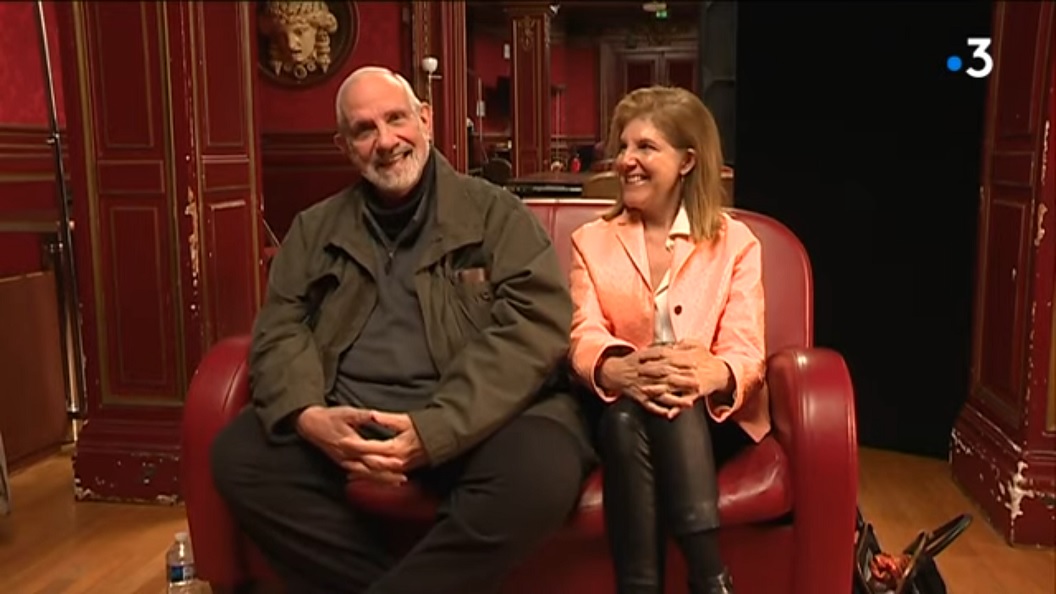
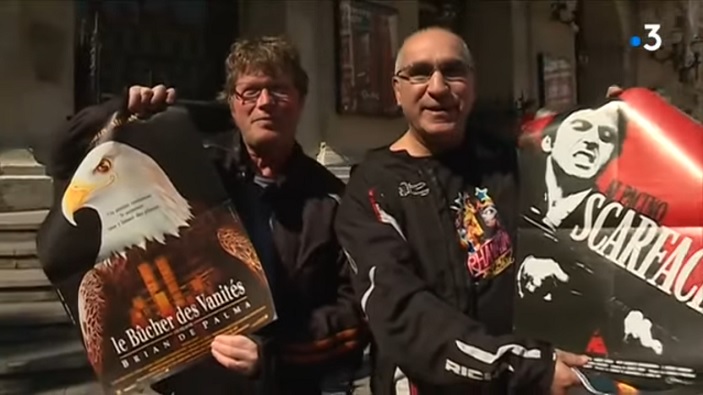


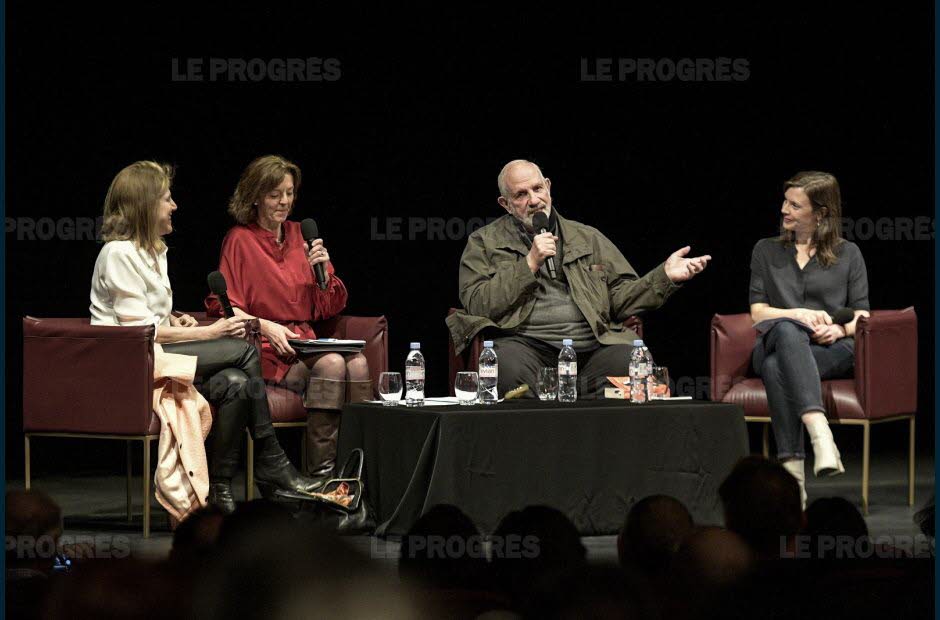
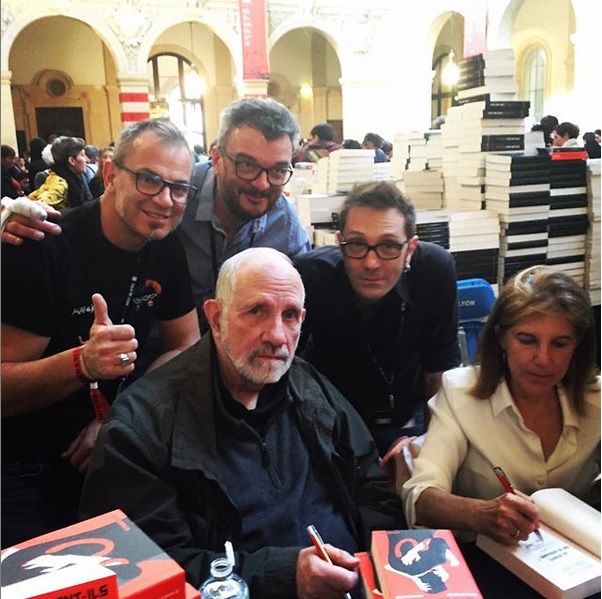
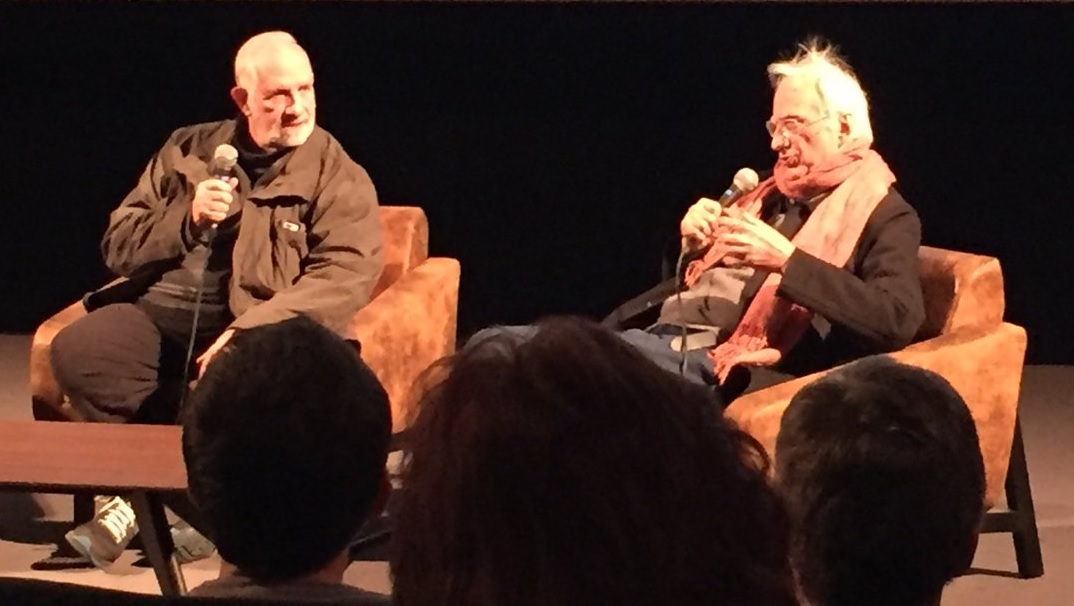
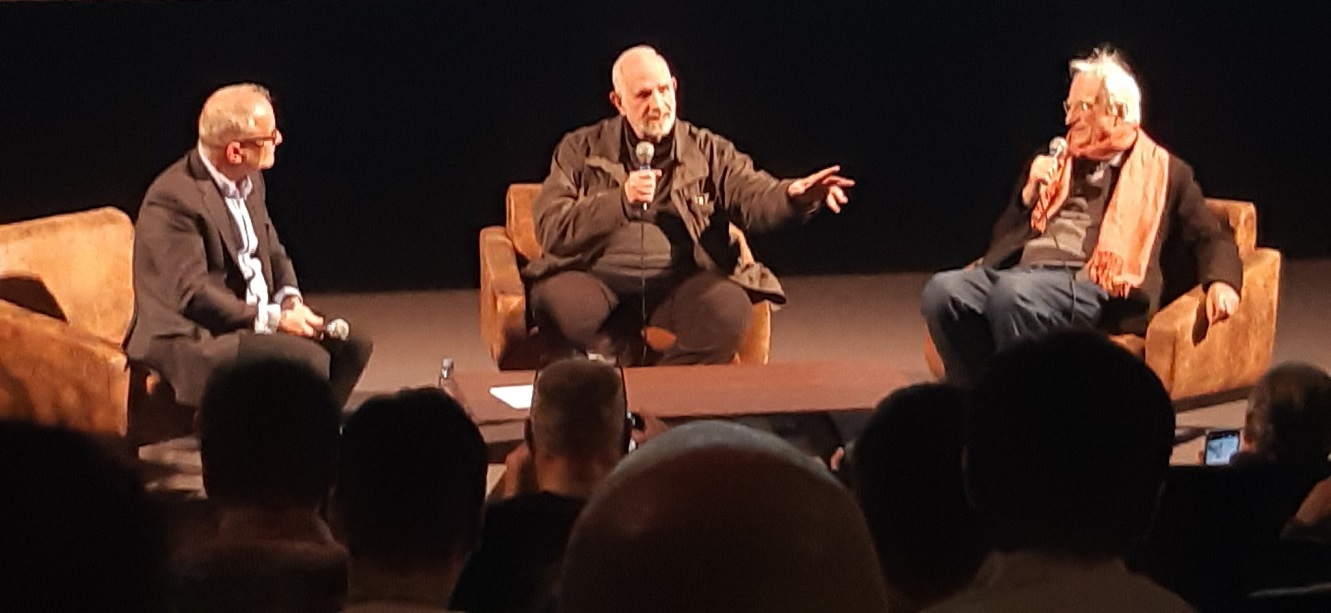
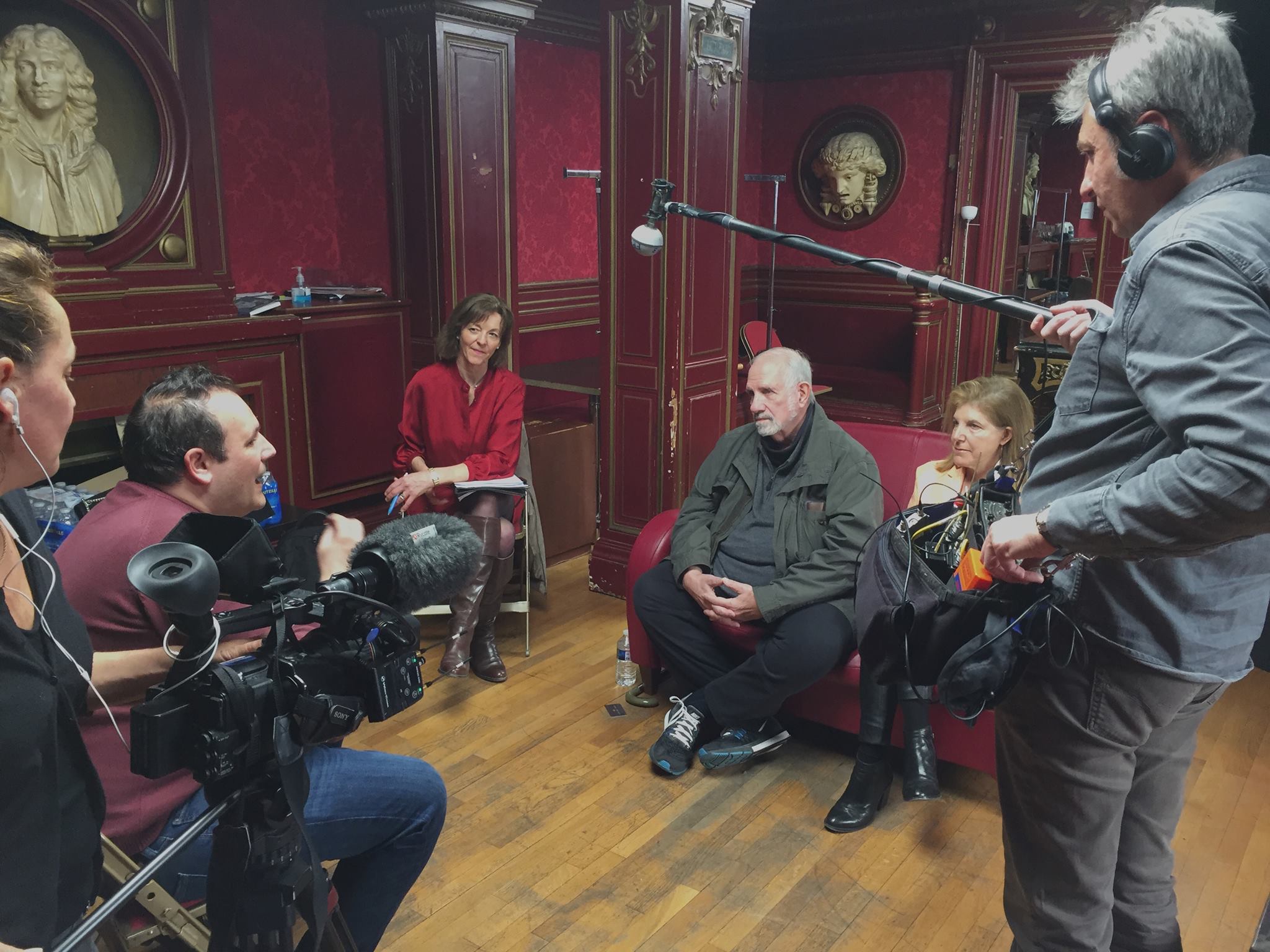
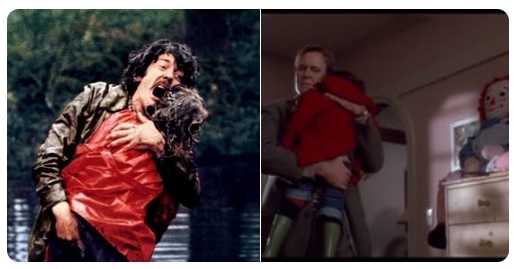
 The Legend Of The Stardust Brothers is a Japanese musical that bombed commercially upon its initial release in 1985, but has taken on cult status throughout the years since. According to an article the other day by
The Legend Of The Stardust Brothers is a Japanese musical that bombed commercially upon its initial release in 1985, but has taken on cult status throughout the years since. According to an article the other day by 